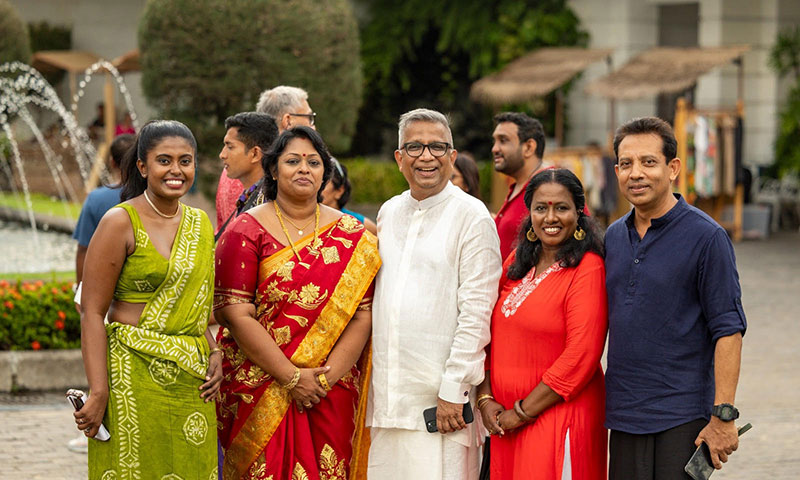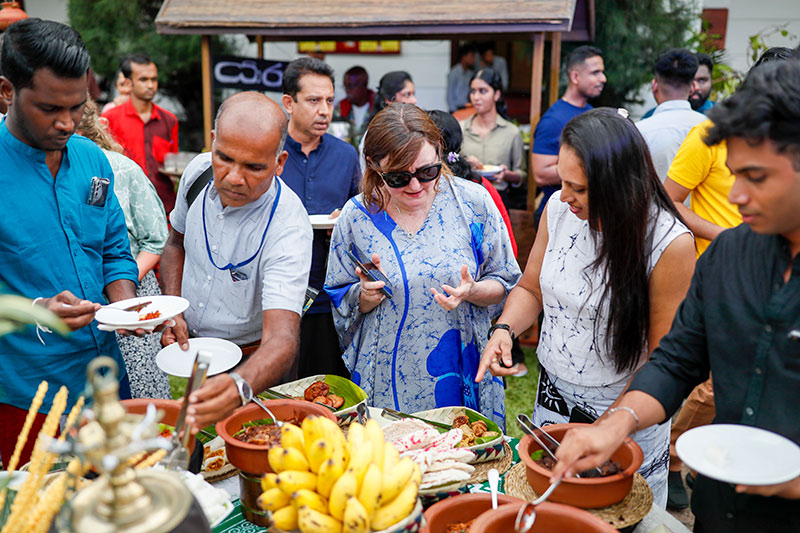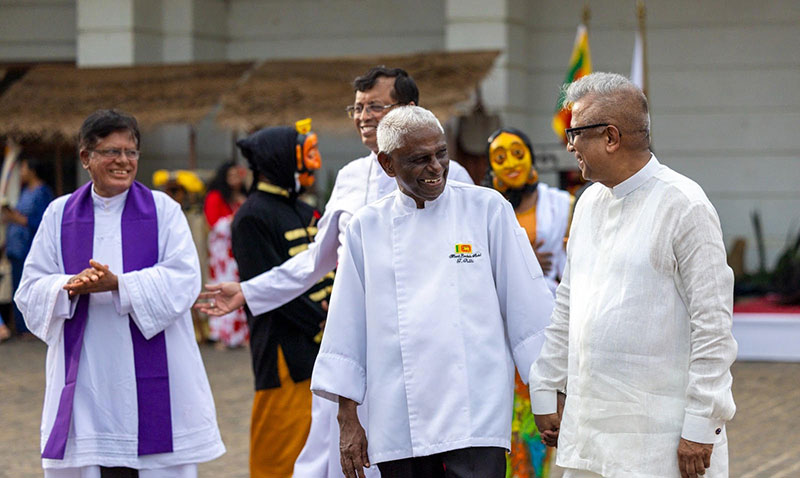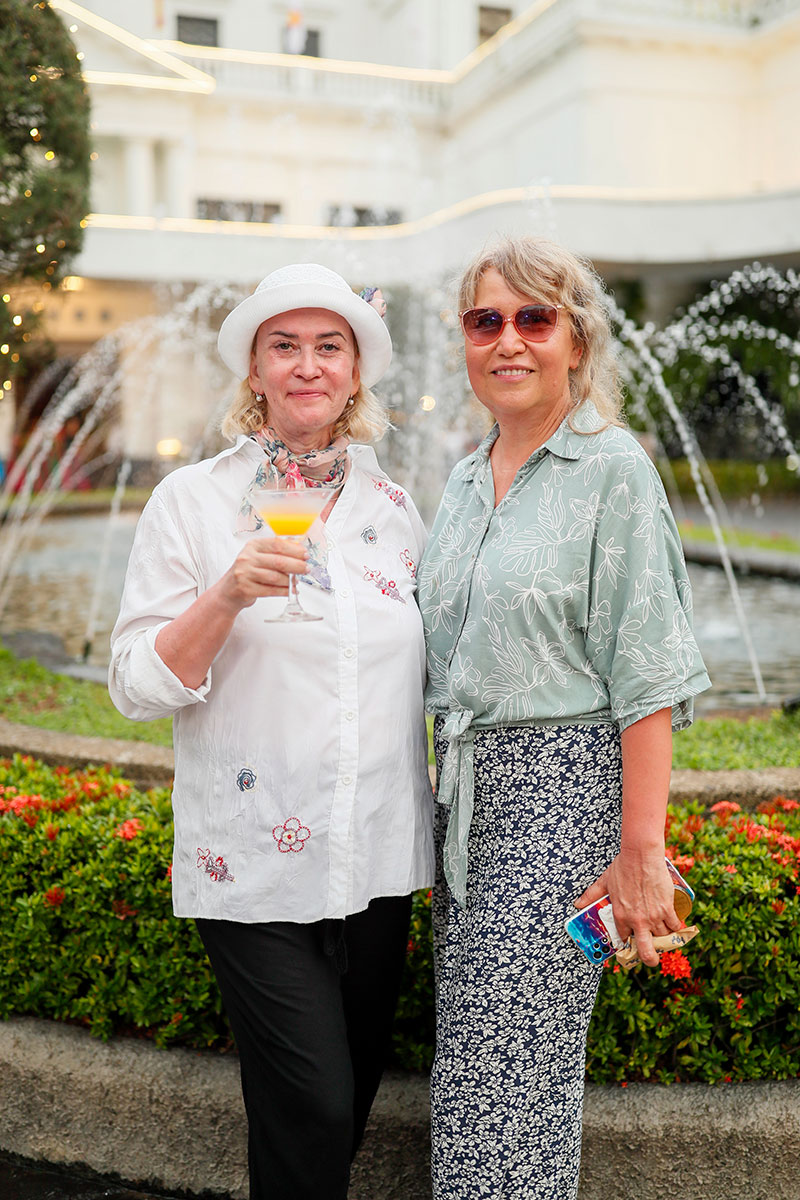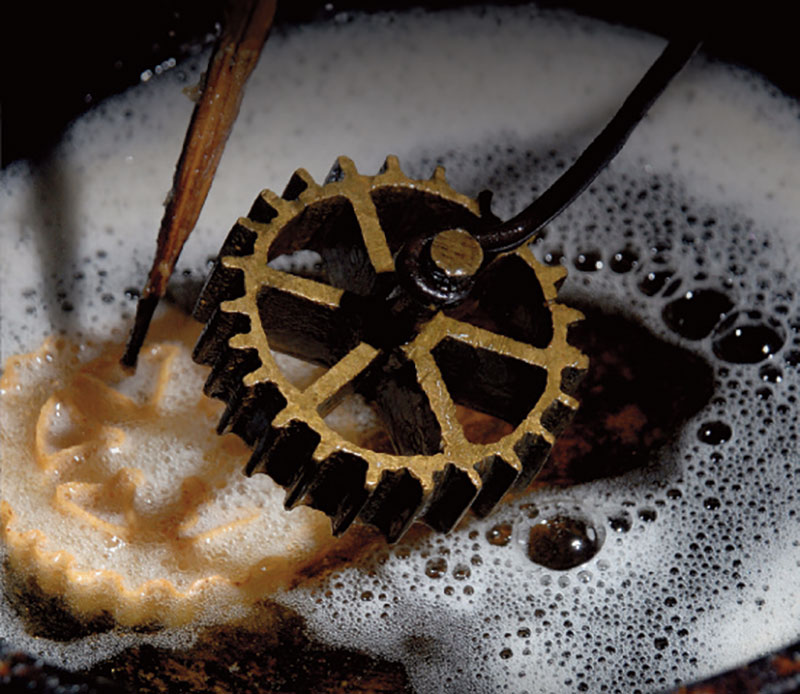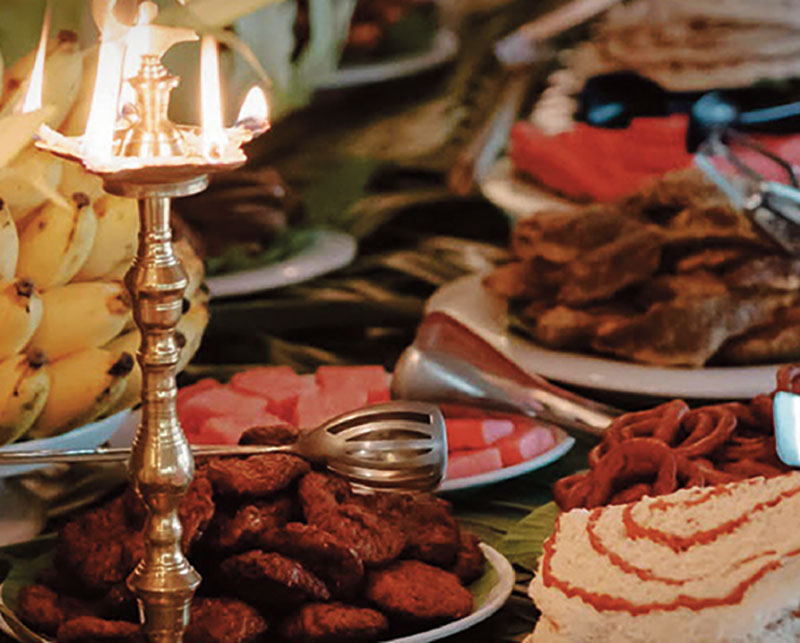Life style
Dosa : wholesome fast food obsession
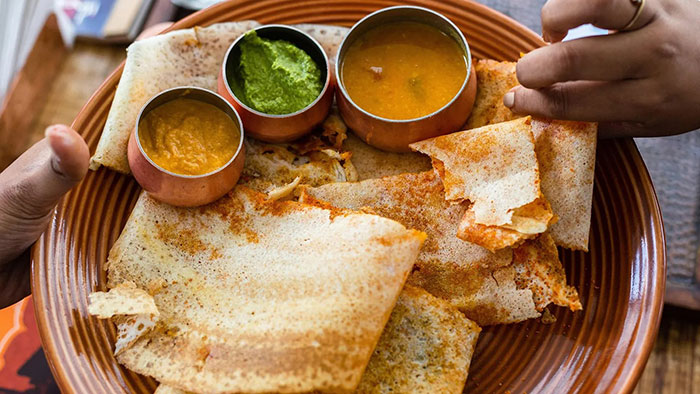
While South Indians have eaten this go-to breakfast food for thosands of years, it has evolved into a fast food item to be eaten at just about any time, day and night.
It was time for Sunday breakfast, and I sprinkled a few water droplets onto a hot griddle to check if they would sizzle. Perfect. Quickly, I poured a ladleful of pale batter onto the pan’s centre, gently spiralling it outwards. Then, raising the heat, I added a generous spoonful of ghee (clarified butter) around the newly formed disc, which soon began to rise slightly and curl at the edges. Now it was time to flip it and cook the other side.
The traditional dosai dates back at least two millennia
Although the glistening, golden-brown circle might have looked like a French crepe or a Russian blini, it was neither. It was a dosai, a thin South Indian pancake made from a fermented batter of soaked rice and black gram, a 2,000-year-old dish beloved by millions of Indians that can now be found in almost every part of the planet, from Parry’s Corner in Chennai to Paris’ La Chapelle neighbourhood (also known as “Tamil Town” or “Little Jaffna”).
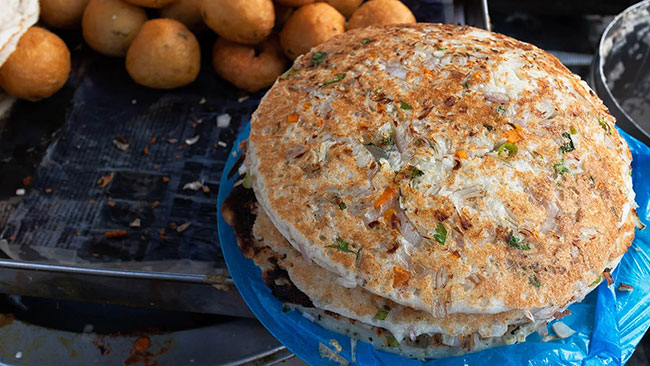
With no time for admiration, I carefully slid a spatula under the hot pancake and plated it alongside a small heap of idli podi, a spicy lentil-based powder. After making a slight crater in the heap, I filled it with gingelly (sesame) oil and mixed them together. Finally, I tore a piece off the crispy dosai, dabbed it in the mixture and popped it into my mouth, enjoying a pleasant burst of tart and spicy flavours followed by an earthy aftertaste of sesame.
This is how millions of South Indians eat this wholesome and satisfying vegetarian dish every morning, sometimes opting for a side of chutney and sambhar (a tangy lentil-based broth) over the idli podi. However, over time, the dosai – also known as thosai, dose or attlu, depending on the Indian region, and as the anglicised “dosa” around the world – has evolved to include different ingredients and fillings such as spicy potatoes as in the globally ubiquitous masala dosa.
The traditional dosai dates back at least two millennia, being documented in ancient literature and passed down through the generations, with the South Indian states of Tamil Nadu and Karnataka both claiming it as their own. In his book The Story of Our Food, food historian K T Achaya says that King Someshwara III (who ruled parts of the present-day Karnataka state) mentions dosai as “dosaka” in the 12th-Century Sanskrit literary work Manasollasa. However, ancestors of the dosai such as mell adai (a pancake made of lentils and rice) and appam (a rice pancake soaked in coconut milk) were being consumed in the Tamil region much earlier.
“Appam and mell adai do find a mention in Madhuraikanchi, a Sangam age literary work from the 3rd or 4th Century,” said Jayakumar S, a researcher of South Indian history and founder of . “But, the actual term “dosai” seems to have been added much later into the lexicon.” He further explained that Senthan Divakaram, an ancient Tamil lexicon (some ascribe it to the 10th Century) attributes dosai to one of the varieties of appam that’s often eaten with the coconut milk on the side.
Despite any debate over who owns the dosai, chefs from the Udupi region in Karnataka were credited with the crispy version we know now somewhere in the 19th Century. Until then, the dosai was more of a soft, fluffy and lacy crepe. And to this day, institutions like (opened in 1924) and (opened in 1943) in Karnataka’s capital Bengaluru have been dishing out delectable dosai for decades. By the early 20th Century, however, many Udupi chefs had migrated to larger Indian towns and cities, popularising the dosai – especially the masala dosa – across India as an affordable breakfast item given its humble and widely available ingredients.
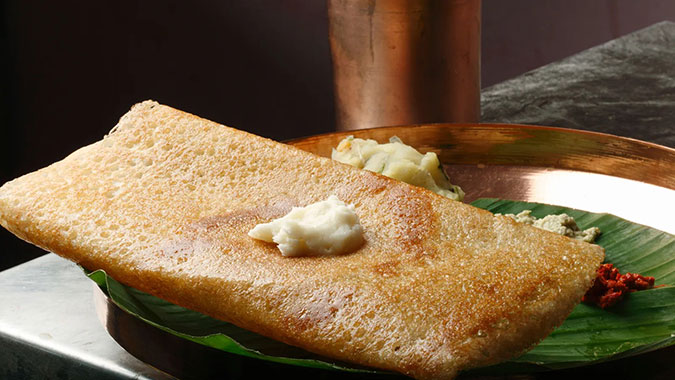
In 2003, the Chennai-based chain took things to the next level by opening South Indian restaurants in various countries, starting in Dubai. And the dosai has continued to grow in popularity around the world, mainly due to the large Indian diaspora who regularly devour the dish and its many variations – including US Senator and current vice presidential candidate Kamala Harris, whose video of took Twitter by storm last November.
The dosai has also recently become trendy in health and wellness circles in India, as it’s considered due to the probiotic qualities that come from its fermentation process. The soaked triad of rice, black gram and a few fenugreek seeds (which impart a distinctive nutty flavour and bitter undertones) is ground with some water and then transferred to a vessel to ferment naturally for seven to eight hours. A few spoonfuls of salt are added after grinding to accelerate the fermentation process.
“The final fermented batter, owing to the action of lactic acid bacteria and yeasts, has increased levels of essential amino acids. This aids in the reduction of anti-nutrients (such as phytic acid) and enzyme inhibitors, thus making it an extremely nutritious food to consume,” explained microbiologist Dr Navaneetha T.
The dosai, termed “dosaka” in ancient Ayurveda texts, is also used by Ayurveda experts in bespoke treatment menus.
“Dosa and idli
[a savoury rice cake made with the same batter as dosai] are part of the diet to treat muscle wasting, constipation and debility,” said Dr Sreelakshmi, a senior wellness consultant in Delhi.
We can dish out almost 70 varieties of dosas at any given time
For most Indians though, dosai is a go-to breakfast food that has evolved into a fast food item to be eaten at just about any time, day and night. Owing to its popularity, affordability of its ingredients and the ease with which the batter ferments in a tropical region like India, dosa outlets can be now found in every corner of the country and beyond.
“Over the years, the batter’s flexibility to be dished out in many variations has aided and lent itself to dosa’s evolution as comfort food,” said chef Thirugnanasambantham K, principal of Welcomgroup Graduate School of Hotel Administration in Manipal. And while the dosai is usually eaten plain (sans fillings), food trends, ingredient availability and convenience factors have resulted in many alternative dosai varieties, both filled and non-filled.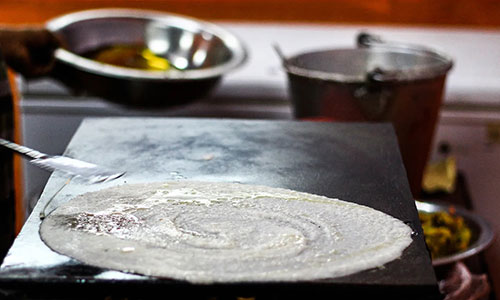
For example, in households across Tamil Nadu, when the fermented batter turns overtly sour from too much fermentation, it gets transformed into uthappam (a thicker dosai with chopped or sliced vegetables); while coconut milk is used instead of black gram in the delicious appam. And new varieties are being created all the time. From Szechuan dosa, hailing from India’s Chinese culinary influence, to the North Indian-inspired paneer butter masala dosa, there is no dearth of dosas churned out by food ventures across India. Even McDonald’s capitalised on this culinary obsession by introducing its in December 2019.
Brothers Ritesh Bhattad, 31, and Ygesh Bhattad, 33, are second-generation businessmen who have flourished by swirling the humble dosai batter. “We can dish out almost 70 varieties of dosas at any given time,” said Ritesh. “However, our signature RBS dosa [filled with grated paneer and onions mixed with peanut chutney and spices] easily sells close to 5,000 pieces every month.” The duo’s successful family-run fast food and catering enterprise, in Hyderabad, has been a hit with college students and office workers, allowing them to open outlets at three more locations across the city.
According to , the masala dosa has been the most-ordered vegetarian dish across India during the pandemic. A whopping 331,423 masala dosas have been delivered by India’s food delivery company, , since lockdown began in the last week of March. This version of dosai has become synonymous with South Indian cooking around the world, although it wasn’t part of India’s culinary history until the Dutch and Portuguese introduced potatoes to India in the 17th Century.
However, in South India, the dosai remains more sacred than a mere breakfast or fast food item, and forms part of the edible offerings to god categorised as “temple cuisine”, which follows closely guarded recipes and sometimes old temple inscriptions.
Azahagar Kovil temple in Madurai, for example, makes a thick and fluffy dosai spiced with cumin seeds and crushed black pepper that is deep-fried in ghee as a divine offering, which is then eaten by devotees. In the town of Kanchipuram in Tamil Nadu, a dosai recipe is depicted on the walls of Varadaraja Perumal Temple. “We have an interesting 16th-Century inscription on the walls… mentioning the preparation of dosai (both savoury and sweet) during Ekadasi processions [religious events conducted on the 11th day after the full moon, and on the 11th day after the new moon],” said Jayakumar S. “This confirms that dosai has been part of the Indian temple cuisine for a long time.”
Whether made at a temple, on the streets or at home, the dosai in its many variations is a divinely tasting food that is deeply embedded into Indian culture.In my family, the dosai isn’t just another food; it’s more like an emotion that cannot be replicated – only experienced in the moment. These words of wisdom came from my grandma, who, a few years back, let me in on an age-old secret shared in turn by her grandma: that no two people can swirl a dosai the same way, no matter how much one tries.
– BBC
Life style
Mount Lavinia Hotel unveils spectacular “Avurudu Maha gedara”
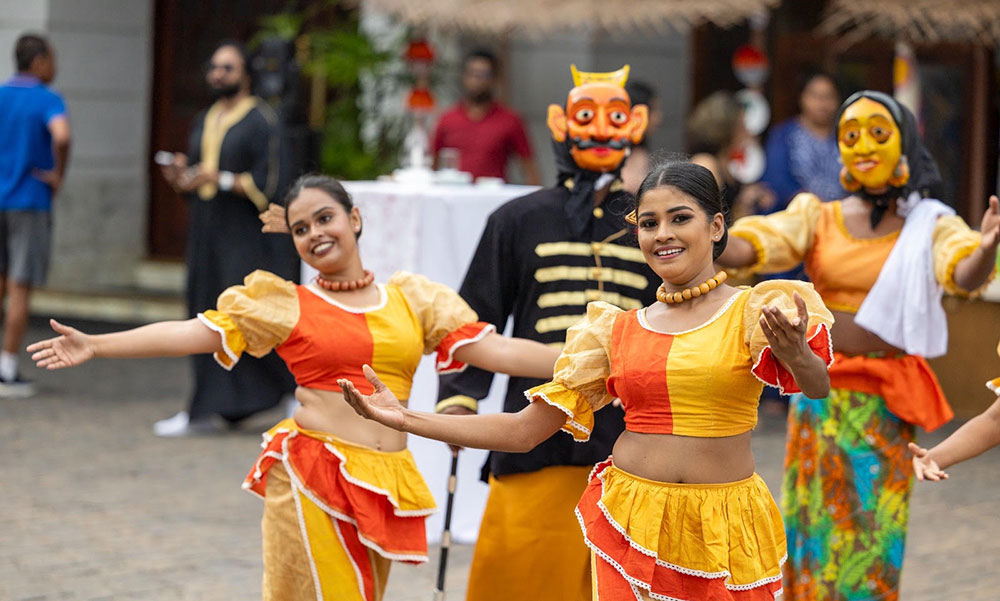
Mount Lavinia Hotel, known as “Galkissa Maha Hotalaya had thier “Avurudu Maha Gedara” celebration for the 2025 Sinhala and Tamil New Year. This year’s festivities were spectacular, with the iconic Chef Publis Silva at the helm of the culinary offerings.
The concept of “Avurudu Maha Gedara” – the grand ancestral home where families gather during New Year – perfectly embodies Mount Lavinia Hotel’s role as a cultural cornerstone in the community. Just as in the traditional village “Maha gedara” welcomes extended families, the historic hotel opens its doors to all Sri Lankans and visitors wishing to experience authentic New Year traditions.
“Avurudu Maha Gedara at Mount Lavinia Hotel is more than just a celebration – it’s our way of preserving and sharing Sri Lanka’s rich cultural heritage,” says Anura Dewapura, Chief Operating Officer of Mount Lavinia Hotel Group. “We take pride in creating a space where families and friends can come together to experience the joy and traditions of the New Year in an authentic setting that honors our collective past while creating new memories.”
Grand Kavili Kade opening and Avurudu market
The celebrations kicked off with the grand opening of the Kavili Kade (sweetmeat shop) on Sunday, April 6th at 4:30 PM. Visitors were treated to a vibrant cultural spectacle featuring traditional dancing, music, games, and dramatic performances. Distinguished guests including corporate partners, business associates, ambassadors, and media representatives attended this colorful inauguration.
The hotel’s courtyard was transformed into an eco-friendly Avurudu Market, showcasing special New Year items, homeware, and decorative pieces. Following the grand opening, the Kavili Kade will welcome guests daily from 10 AM to 8 PM until April 13th.
Exquisite Kavili hampers
For those looking to bring the flavors of Avurudu home, Mount Lavinia Hotel has curated three distinctive kavili hampers named after beloved Sri Lankan flora:
The premium Erabadu Hamper – the most comprehensive sweetmeat collection
The Ehela Hamper – a delightful mid-range offering
The Bakmee Hamper ) – a perfect introduction to traditional treats
Each hamper can be delivered directly to your doorstep, making them ideal both for family celebrations and as meaningful gifts during the New Year season.
“Feast of the Nation” – A Culinary Journey Across Sri Lanka
On Avurudu Day, Mount Lavinia Hotel will host its renowned “Feast of the Nation” lunch buffet, celebrating Sri Lanka’s diverse culinary heritage. At , this extraordinary buffet transcends ethnic boundaries, offering a comprehensive journey through the island’s rich culinary landscape. The feast features authentic dishes from every corner of Sri Lanka, bringing together the distinct flavors and cooking traditions that represent the country’s multicultural identity in one magnificent spread.
“The Avurudu celebration at Mount Lavinia Hotel represents the true spirit of Sri Lankan unity,” Dewapura continued. ” Through our traditional foods, we honor the cultural tapestry that makes our nation so special.”
Mount Lavinia Hotel’s “Avurudu Maha Gedara” welcomes Sri Lankans of all ages and backgrounds to experience the rich traditions of the New Year in the magnificent setting of this historic landmark.
For reservations and inquiries, contact Mount Lavinia Hotel at 0112 711 711.
Life style
Celebrate Avurudu in grand style
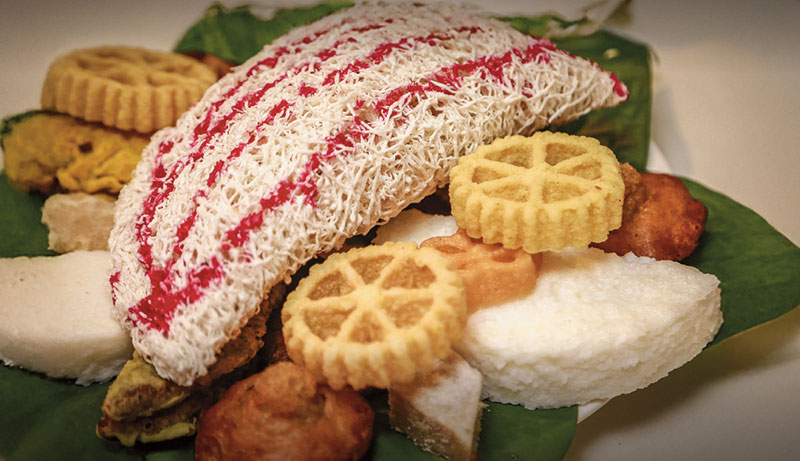
This April, Cinnamon Grand Colombo brings the joyous essence of Avurudu alive with a line-up of delightful culinary experiences, cultural festivities, and memorable moments for the whole family. Here’s how you can celebrate the Sinhala and Tamil New Year with flavour, tradition, and warmth said the press release.
New Year vibes
The release said experience the sights, sounds, and smells of a truly Sri Lankan New Year from 12–15 April 2025, starting from 5 PM onwards at the Lobby.
Watch live demonstrations of traditional sweetmeats being made, like kawum and kokis, and enjoy the rhythmic beats of raban drums as the hotel lobby transforms into a celebration of Avurudu culture.
Lobby – Cinnamon Grand Colombo
12–15 April, from 5 PM onwards
Call +94 11 247 3494 for details
Celebrate Avurudu Tradition and taste at Nuga Gama
On 14 April 2025, step into a truly authentic village-style Avurudu celebration at Nuga Gama. Starting at 8 AM, guests can enjoy a lavish Kavili Table and Lunch Buffet filled with traditional sweets and festive Sri Lankan dishes.
There’ll also be Avurudu games and vibrant activities to keep the whole family entertained.
Life style
Celebrate Sinhala and Tamil New Year at Sun Siyam Pasikudah’s Festival of the Sun
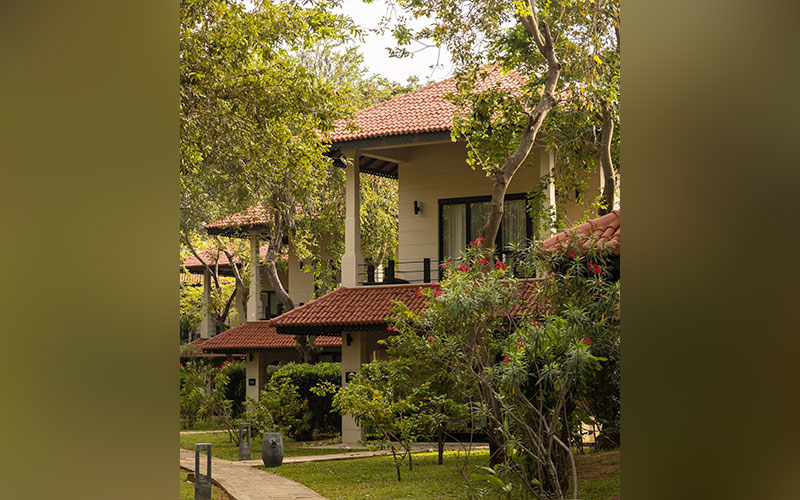
This Sinhala and Tamil New Year, step away from the ordinary and embrace the spirit of Avurudu at Sun Siyam Pasikudah with the joyous rhythms of tradition, community, and coastal serenity, under the vibrant theme, Festival of the Sun said a press release
Set along the golden shores of Pasikudah, the luxury five-star beach resort transforms into a festive haven where timeless rituals meet joyful recreation. From traditional ceremonies to fun-filled family games, guests are promised an unforgettable experience that captures the heart of Sri Lankan heritage, celebrating the essence of togetherness, gratitude, and renewal release said.
As the sun rises to mark the dawn of the New Year, guests will witness the symbolic milk boiling ceremony—a sacred ritual signifying prosperity and new beginnings. The preparation of the Kavili Mesaya, or traditional sweet table, will follow—featuring a colourful spread of mouthwatering Avurudu treats like kokis, mung kavum, aluwa, and konda kavum. The celebration continues with a ceremonial oil lamp lighting, setting the tone for a day rooted in cultural elegance and island warmth.
The Kids’ Corner is all set to light up with playful delights such as Breaking Balloons and Placing the Eye on the Elephant, promising giggles and memories for the little ones. Families and groups can bond over light-hearted yet lively games including Fill the Bottle by Hand, Sack Races, and the ever-popular Musical Chairs—guaranteed to spark friendly competition and lots of laughs.
For those seeking a thrill, competitive events like Tug of War (Ladies vs Gents), Pillow Fight, and the classic Blindfolded Pot Breaking are sure to bring out the festive spirit in full force.
While the Avurudu festivities steal the spotlight, Sun Siyam Pasikudah continues to charm guests with its signature blend of tropical luxury and authentic Sri Lankan hospitality.
-

 News4 days ago
News4 days agoSuspect injured in police shooting hospitalised
-

 Features5 days ago
Features5 days agoRobbers and Wreckers
-

 Features7 days ago
Features7 days agoSri Lanka’s Foreign Policy amid Geopolitical Transformations: 1990-2024 – Part III
-

 Midweek Review7 days ago
Midweek Review7 days agoInequality is killing the Middle Class
-

 Business4 days ago
Business4 days agoSanjiv Hulugalle appointed CEO and General Manager of Cinnamon Life at City of Dreams Sri Lanka
-

 Business6 days ago
Business6 days agoNational Anti-Corruption Action Plan launched with focus on economic recovery
-

 Features3 days ago
Features3 days agoLiberation Day tariffs chaos could cause permanent damage to US economy, amid global tensions
-
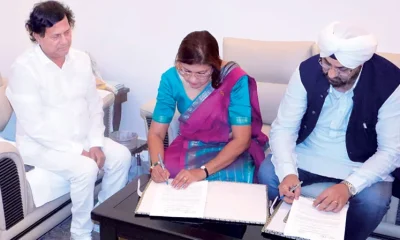
 News7 days ago
News7 days agoIChemC signs MoU with KIIT, India


